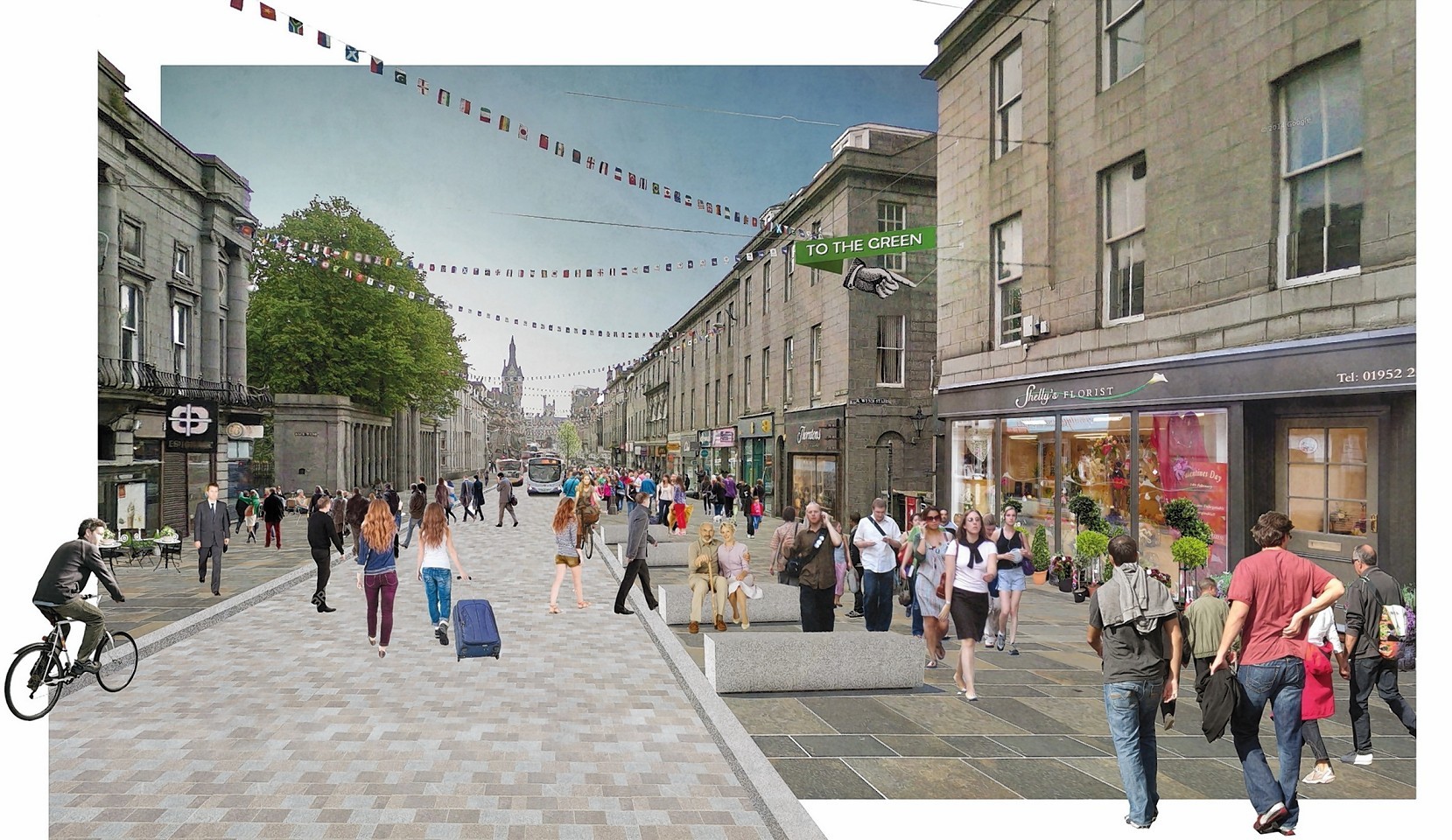A new masterplan for Aberdeen aims to breathe new life into the heart of the city. John Findlay, planning partner in the Granite City office of property firm Ryden considers its chances of success
The unanimous approval of the masterplan by the city council represents a major step forward following the sometimes acrimonious debate over Union Terrace Gardens and the much maligned Marischal Square development.
The purpose of the plan and its delivery programme is stated as “energising the city centre to deliver prosperity and better quality of life for all”.
Despite its flaws, it has generally been welcomed and the fact it gained the unanimous support of the full council is in itself no small feat.
Perhaps that support is understandable, given the claim it will create 5,500 jobs, inject £280million into the local economy and provide 1,600 new homes in the city centre.
Now it has been approved, the real challenge starts to make sure it is funded and delivered.
Aberdeen has won awards for the preparation of masterplans in the past but failed to deliver. That cannot be allowed to happen this time around, given the difficulties currently being experienced by the oil and gas industry and the impact on the local economy.
The fact the plan has the unanimous support of the council is a good starting point. For it to be successful, it needs the buy-in not just of the current administration but of future ones too.
It also needs the buy-in of the private sector and I think this is achievable, but only if three changes are made promptly.
First among these is strong leadership from the regeneration board, which should include representatives from the public and private sectors as well as the wider community.
Secondly, the appointment of an enthusiastic team charged with the plan’s delivery – again involving the private sector.
And finally, the council must ensure its various service departments and functions are aligned and working towards the overall vision.
We have seen contradictions in the approaches taken by various council departments to development all too often. If this happens again, the masterplan will inevitably stall.
Given the new-found togetherness of “Team Aberdeen”, the key to delivery is funding.
The council is looking closely at its own finances in this regard, but landing the City Deal will be crucial if we are to see progress with the various projects in the timescale envisaged.
Private sector commitment to funding will also be necessary, which will be a challenge in the current climate. Nevertheless, through a combination of joint working and innovative funding solutions I feel progress can be made.
We can’t escape the fact there is the potential for compulsory purchase in an effort to secure land assembly and facilitate the delivery of projects.
It’s a thorny subject and one councils have been reluctant to pursue in the past, but it could facilitate the delivery of projects and in turn be the key to unlocking development potential.
Overall, the preparation and approval of the city centre masterplan is a positive step forward to the regeneration of the city and should be welcomed. The council cannot allow it to gather dust.”
